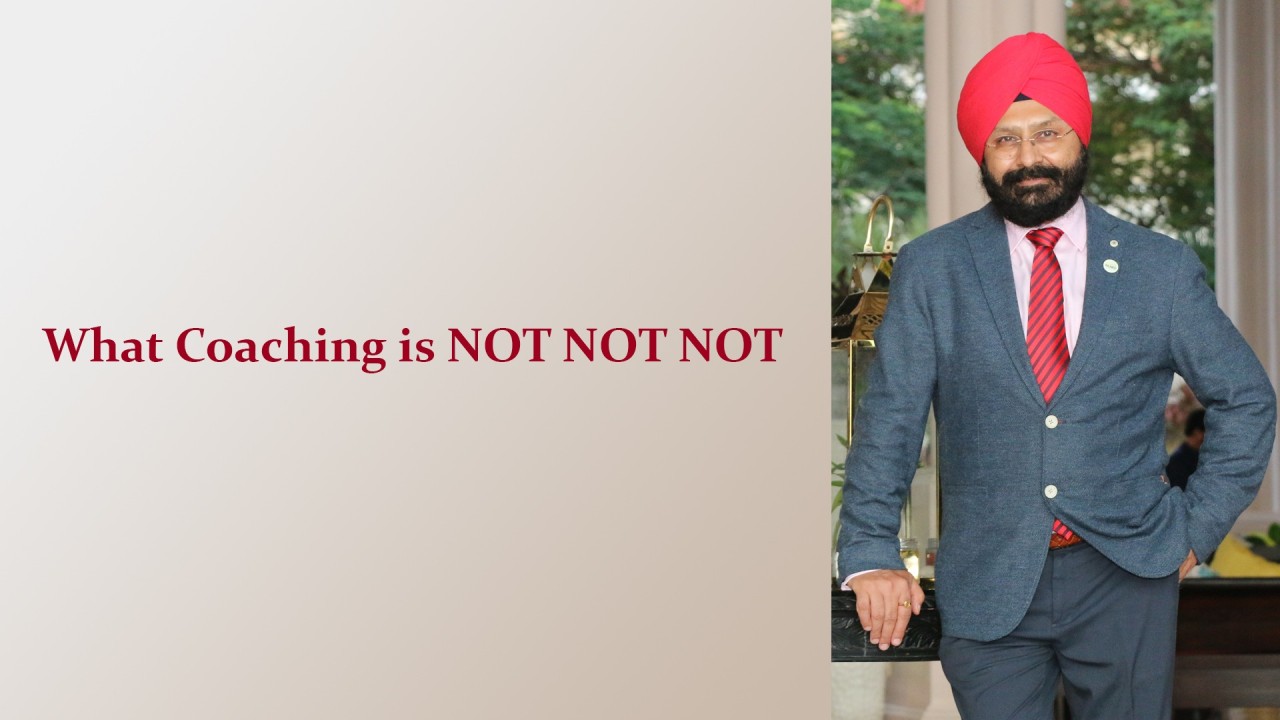
What Coaching Is NOT NOT NOT
Dr.Jagmohan Singh RISHI CEOs COACH
Global Head- L&D- Digital?? ICF- PCC | India’s Top Certified CEO's Coach??10X Growth Sales Trainer ??#1 Amazon best seller Author ?? Golden Peacock Winner - L&D &HR??2022 Top Customer Experience Thought Leader & Speaker
?Introduction
Coaching, a powerful tool for personal and professional development, is often misunderstood. It's essential to dispel common misconceptions and clarify what coaching truly entails. This blog post will explore what coaching is NOT, NOT, NOT and provide insights into the core principles of effective coaching.
?
Misconception 1: Coaching is Therapy
While coaching can help individuals address personal challenges, it is not therapy. Therapists delve into past experiences, emotions, and psychological issues, while coaches focus on future-oriented goals and actionable steps. Coaching is about empowering individuals to take control of their lives and achieve their full potential.
?
Misconception 2: Coaching is Telling People What to Do
Coaching is not about consulting, giving advice or telling people what to do. Instead, it involves asking powerful questions that stimulate thinking and self-discovery. Coaches facilitate the process of learning and growth, empowering clients to find their own solutions.
?
Misconception 3: Coaching is Mentoring
While both coaching and mentoring involve guidance and support, they differ in their focus. Mentorship often involves sharing personal experiences and providing career advice. Coaching, on the other hand, is more focused on helping clients develop their skills and achieve specific goals.
?
Misconception 4: Coaching is Quick Fixes
Coaching is not a quick fix solution. It requires time, commitment, and consistent effort from both the coach and the client. Significant change and transformation take time, and coaching provides a structured approach to support this process.
?
Misconception 5: Coaching is Only for Leaders
Coaching is not limited to leaders. It can benefit individuals at all levels of an organization, from entry-level employees to executives. Coaching can help individuals improve their communication skills, build confidence, and enhance their overall performance.
?
What Coaching Is
?
Key Principles of Effective Coaching
?
Conclusion
By understanding these distinctions, individuals can make informed decisions about seeking coaching support and maximize the benefits of this powerful tool. By understanding what coaching is and what it is not, individuals can maximize the benefits of coaching and achieve their full potential.
?
Would you like to explore specific coaching techniques or discuss challenges in more detail? Do let me know by connecting with me on [email protected].
?
Cheers,
Jagmohan Rishi Singh
Chief HR Officer- GRP Ltd.| ICF PCC Level Coach| Top 100 Great People Manager-India2023|Visionary Strategist| Excellence Champion| DEIB Evangelist| Transformation Catalyst| Crusader against Loneliness & Burnout
1 周Very true.. thanks for reminding Dr.Jagmohan Singh RISHI CEOs COACH
Assosciate Director,Clinical Sales at bioMérieux India
1 周Coaching is needed to take that big leap !! Nicely illustrated .
Commercial Excellence | Martech Enabler | Digital strategy | Customer Engagement & Experience
1 周Very well articulated Dr.Jagmohan Singh RISHI CEOs COACH Sir. This is very helpful to understand A coach better. Very recently I had learnt about the very first point you had mentioned about coaching and counselling.